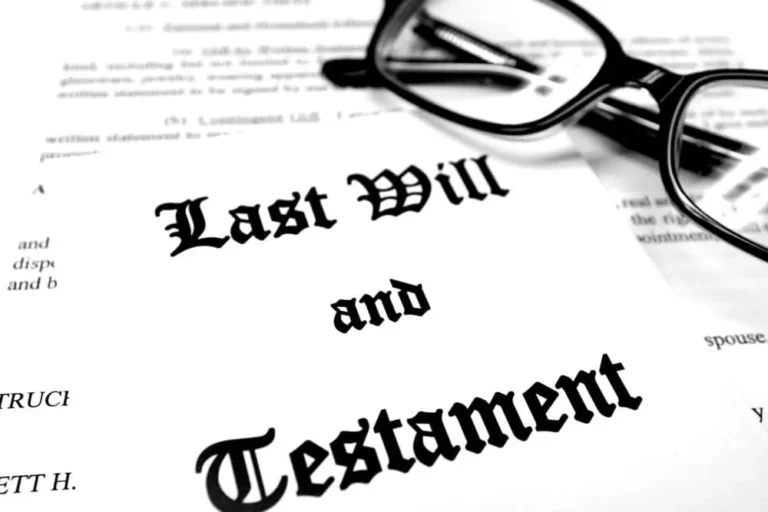

Dealing with the loss of a loved one is already a challenging time. However, if the executor of the will is causing additional stress due to their inefficiency, the situation can be even more difficult. In such cases, it’s important to know that there are ways to have them removed.
An executor might be removed in the following circumstances:
It’s tough to take someone off executor duty unless you can convince a judge they can’t do the job or shouldn’t be trusted.
The evidence you require will depend on the reason why you want an executor removed, for example:
For an executor to be considered unsuitable, they must have done something unlawful directly related to the estate administration. For example:
If you allege misconduct, it can be challenging to prove and could lead to further legal issues, so it is wise to consult a solicitor.
If the court is satisfied with the evidence provided, it has a discretionary power under section 50 of the Administration of Justice Act 1985 to appoint a substitute executor or to terminate the appointment of an executor.
A professional executor is often appointed to avoid the potential for a further family dispute.
Don’t forget about Insurance
If you haven’t insured yourself, other executors and the beneficiaries, check out our Executor Insurance Guide to understand your liabilities and the insurance available to you.
If you have property to insure, don’t rely on the existing insurance to cover you. It may not give you the cover you need to fully protect the property or your liabilities. Check out our probate house insurance page for more information or to get a quote.
If you think the executor named in the will isn’t the right person for the job, don’t try to handle it yourself. Talk to a lawyer about your situation and the evidence you have.
They can help you decide the best course of action, whether it’s working with the executor, getting them to step down, or going to court to have them removed.
If you have any other questions on what is involved when acting as an executor visit our executor guide page.
Legal Disclaimer:
This article is for general information only and should not be taken as legal advice. If you need specific guidance on probate or estate administration, please seek professional legal advice — you can find a probate solicitor here.
As an executor or administrator, you can be personally liable for defending claims and covering losses if you don’t have Probate Insurance, even when the claim is made against the estate, not directly against you.
Contentious probate isn’t limited to courtroom battles; it often begins with disagreements over who inherits, how the estate is handled, or whether the Will is valid.
These situations may involve someone being left out of the Will, a dispute over how much someone should receive, concerns about how the Will was created, or confusion when no Will exists. Claims under the Inheritance (Provision for Family and Dependants) Act 1975 are particularly common.
Such disputes can delay the probate process, increase costs, and expose executors to personal liability. It’s far better to identify and address potential risks early, before they escalate.
Arrange a FREE consultation with a Contentious Probate Solicitor.
They’ll assess your situation, confirm whether a claim is unlikely (which may help you qualify for Early Distribution Insurance), or provide expert guidance on how to protect both yourself and the estate.

Rob Faulkner is a leading expert in Probate Insurance, Probate Risk Management, Property Insurance (especially Unoccupied Home Insurance), with nearly 30 years’ experience in the UK insurance market. He is the founder of Insuristic, a specialist provider of probate-related insurance solutions and educational content for executors.
Rob is an ACII Chartered Insurance Broker, a Chartered Manager, and a Member of the Chartered Institute of Marketing. His background spans insurers, brokers, and Insurtechs, always focused on innovation, transparency, simplicity, and fair value.
Rob is passionate about product development and improving insurance education through marketing, helping people understand what they are buying. These values sit at the heart of everything we do at Insuristic.
His mission is to make Insurance smarter, easier to understand, and faster to buy. Particularly for the Probate market, where Rob has identified friction points and solved them for lay clients and solicitors alike.
Want to learn more? Visit my author page or follow me on LinkedIn.

Insuristic Limited is an Appointed Representative of SJL (Worcester) Ltd, who are authorised and regulated by the Financial Conduct Authority with the reference number 763599. This can be checked by visiting https://register.fca.org.uk/s/.
Registered Office: Unit 2, 262 Walsall Road, Cannock, England, WS11 0JL. Registered in England and Wales No: 13926650.
Insuristic is a registered trademark. ©Copyright 2023 Insuristic Limited. All Rights Reserved.